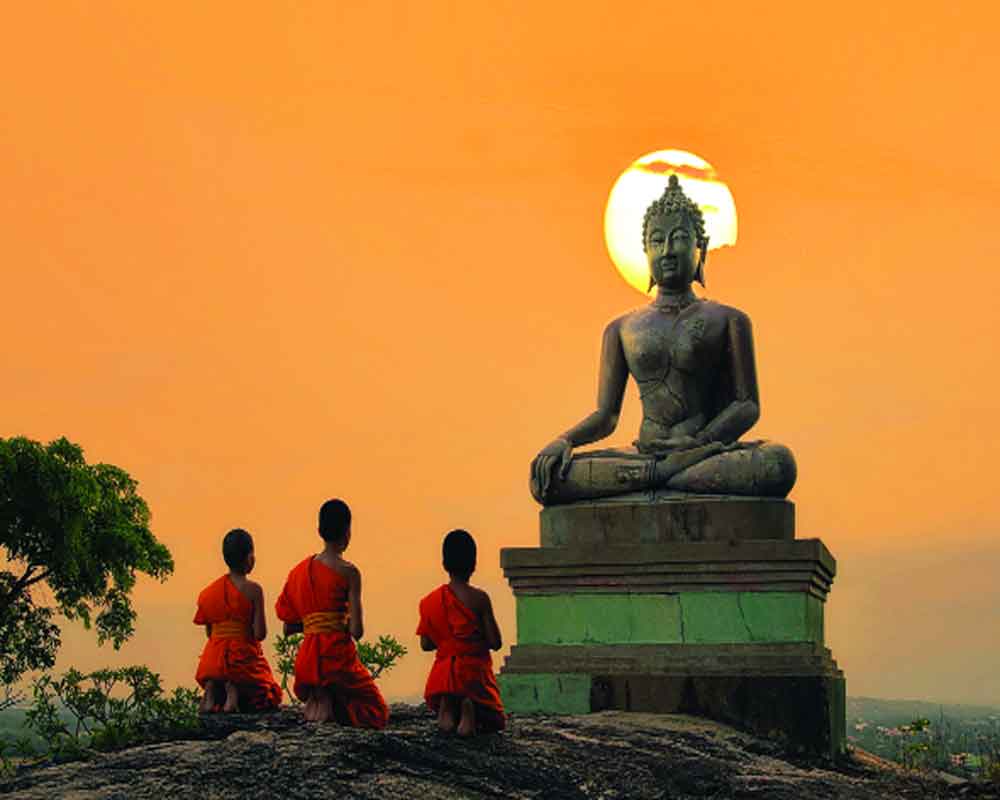Buddhism's essence lies in non-violence, compassion and enlightenment
Buddhism, founded by Siddhartha Gautama, commonly known as the Buddha, is a philosophy and way of life that places great emphasis on the alleviation of suffering and the pursuit of enlightenment. Central to the teachings of Buddhism is the principle of non-violence, or "ahimsa," which holds a profound and essential role in shaping the ethical framework of this ancient spiritual tradition.
The Essence of Non-Violence in Buddhism:
Compassion and Interconnectedness: Buddhism teaches that all beings are interconnected and share a common desire for happiness while seeking to avoid suffering. Non-violence stems from the understanding that causing harm to others ultimately results in harm to oneself. Compassion, a key tenet of Buddhism, encourages followers to cultivate empathy and extend benevolence to all living beings.
The First Precept: The Five Precepts form the ethical guidelines for Buddhist practitioners, with the first precept explicitly stating, "I undertake the precept to refrain from taking life." This foundational principle underscores the sanctity of all life and emphasizes the commitment to non-violence as a fundamental aspect of ethical conduct.
Karma and Consequences: Buddhism teaches the concept of karma, the law of cause and effect. Engaging in violent or harmful actions generates negative karma, which can have repercussions in this life or future lives. By practicing non-violence, individuals seek to break the cycle of negative karma, promoting a path towards enlightenment and liberation from suffering.
Mindfulness and Contemplation: Buddhist practices, such as mindfulness meditation, cultivate awareness and self-reflection. Non-violence is not only manifested in physical actions but also in the thoughts and intentions of individuals. By developing mindfulness, practitioners strive to eliminate harmful thoughts and cultivate a mindset of kindness and non-harming.
Conflict Resolution: Non-violence plays a crucial role in conflict resolution within Buddhist communities. Rather than resorting to aggression or retaliation, followers are encouraged to seek peaceful solutions through dialogue, understanding, and reconciliation. This approach aligns with the Buddha's teachings on skillful means to address conflicts without causing harm.
Example of the Buddha: The life of the Buddha serves as a profound example of non-violence. From his renunciation of the royal life to his enlightenment under the Bodhi tree, the Buddha consistently demonstrated compassion and refrained from causing harm to any being, even in the face of adversity.
Non-violence, deeply rooted in the core principles of Buddhism, is a guiding force that shapes the ethical conduct of its followers. Through the practice of compassion, mindfulness, and the observance of the Five Precepts, Buddhists strive to create a world free from violence and suffering. By embracing the philosophy of non-violence, individuals embark on a transformative journey towards personal well-being, social harmony, and the ultimate goal of enlightenment.
(The writer is a Buddhist monk and spiritual guide, views are personal)
























